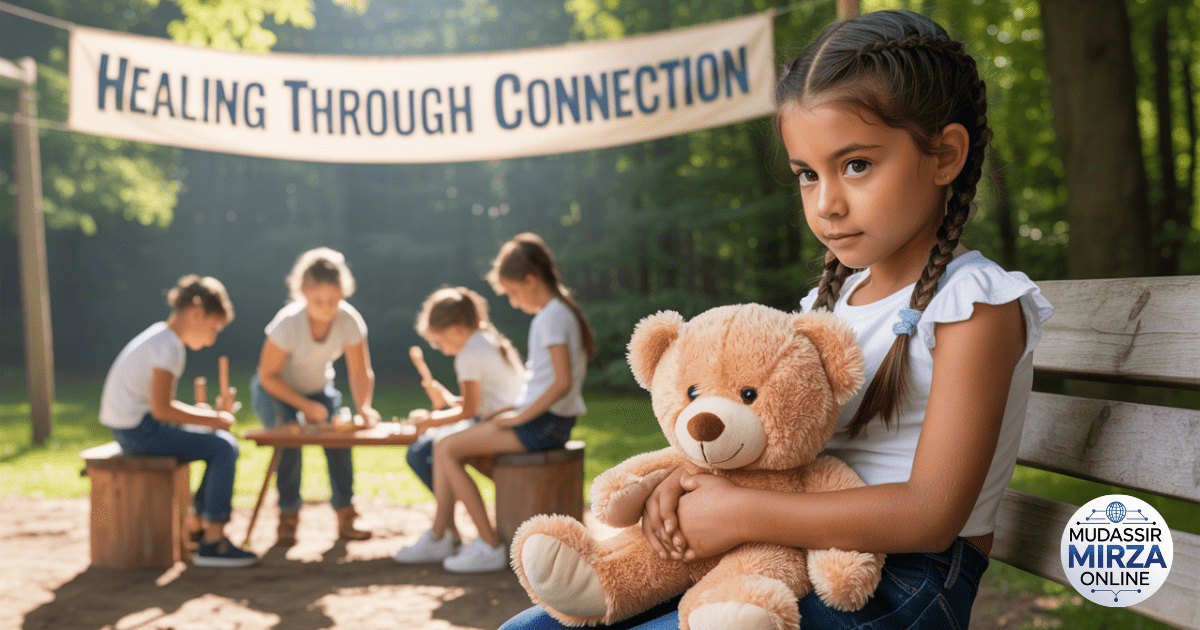Since the onset of the war in Ukraine, countless children and their mothers have faced immense psychological trauma. In response, mental health camps have been established to provide support and healing. These camps have shown promising results, with 75% of participating children experiencing improved mental health.
Understanding the Mental Health Camps
The mental health camps in Ukraine are designed as intensive, short-term interventions aimed at addressing the psychological needs of war-affected children and their mothers. These camps offer a safe environment where participants can begin the healing process.
Key Features:
-
Duration: Typically, these camps run for six days.
-
Participants: Children and their mothers from war-affected regions.
-
Activities: Therapeutic sessions, stress management workshops, and recreational activities.
Impact and Outcomes
A recent study published in Global Health highlighted the effectiveness of these camps.
Findings:
-
Improved Mental Health: 75% of children showed overall improvement in their mental state after attending the camp.Cosmos
-
Maternal Engagement: 80% of mothers utilized or planned to use mental health resources post-camp.
-
Screening and Referrals: Children were screened for post-traumatic stress disorder (PTSD), with referrals made for those needing further evaluation and treatment.
Program Development and Leadership
The camps were developed and are led by Ukrainian founder Khrystyna Dudashvili, recognizing the urgent need to support displaced children and mothers from occupied territories and front-line regions.Cosmos
Development Process:
-
Initial Camps: Conducted approximately 50 one-day camps to observe effective support methods.
-
Six-Day Program: Developed in collaboration with experienced psychologists and therapists, focusing on both children and mothers.Cosmos+1UCAP+1
Therapeutic Approaches
The camps employ various therapeutic methods to address trauma:Wikipedia
-
Art and Music Therapy: Allowing children to express emotions creatively.WIRED
-
Movement and Dance: Helping release stress and promote physical well-being.
-
Breathing Exercises and Yoga: Teaching relaxation techniques to manage anxiety.
-
Stress Management Sessions for Mothers: Equipping mothers with tools to support their children’s recovery.
Challenges and Considerations
While the camps have shown success, challenges remain:
-
Ongoing Exposure to Trauma: Many children continue to live in active war zones, making continuous support essential.Cosmos+1Irwin Redlener+1
-
Need for Scalability: Expanding the program to reach more affected families is crucial.
-
Sustainability: Ensuring long-term funding and resources to maintain and grow the program.
Conclusion
Mental health camps in Ukraine have provided a lifeline for children and mothers grappling with the psychological toll of war. With a structured approach and dedicated leadership, these camps have facilitated significant improvements in mental health, offering a model that could be replicated in other conflict-affected regions.
FAQs
Q: What is the primary goal of the mental health camps?
A: To provide psychological support and healing for war-affected children and their mothers.
Q: How long do the camps last?
A: Each camp typically runs for six days.
Q: Who leads the program?
A: Ukrainian founder Khrystyna Dudashvili, in collaboration with experienced psychologists and therapists.
Q: What activities are included in the camps?
A: Therapeutic sessions, art and music therapy, movement and dance, breathing exercises, yoga, and stress management workshops.
Q: How effective are the camps?
A: Studies have shown that 75% of participating children experienced improved mental health post-camp.
Read our previous article: Ways to bridge the climate change insurance gap
